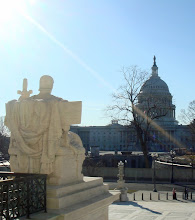Week 20: Equality, revisited
In the Week 51 essay, we explored the fool’s errand of trying to legislate equality of conditions and outcomes, drawing parallels to the lessons gleaned from dystopian literature and recorded in the historical record of the failed policies of our government and governments around the globe.
I still maintain that equality of outcomes is a dangerous pursuit, as it encourages sloth, discourages initiative, and would surely be a death knell to the better angels of our nature. It turns people into takers as opposed to givers; taking being an act of compulsion, giving being a voluntary act.
One may ask how this conforms with the most fundamental principle of our republic, which is the equality of all people. It is a worthwhile question indeed.
The answer may be found in Euclidean Geometry.
Euclid of Alexandria was a Greek mathematician, who lived during the mid-fourth to mid-third centuries B.C., and was among the first to present a comprehensive and coherent treatment of mathematics.
Euclid’s first axiom is stated as thus, “Things which are equal to the same thing are also equal to one another.”
This axiom provides, I think, a solution to Socrates’ examination about disputes over the equality of things. For simple things, such as the relative lengths or weights of two items, we could measure or weigh them. But what about two things that cannot be measured with such ease, such as what is more or less pleasing to god or the relative nature of human beings?
The most base and vile way some people attempt this is by assessing another’s age, color, gender or some other superficial and utterly meritless characteristic.
Humans, some say, rule the Earth, but as we look comparatively at the rest of creation, do we not find that the cheetah is swifter, the buffalo stronger, the flower more beautiful, and the ant more industrious? As we consider every creature, it is miraculous indeed that we claim dominance over these.
Within our own species, some are swifter, stronger, more beautiful and more industrious when compared one to another. I have no problem whatsoever thinking of many friends I have who exhibit such traits to a greater and better degree than I in each of these areas and in many more, including keenness of intellect and depth of soul. Knowing this to be true, how can we claim that all people are equal?
Examine carefully Euclid’s axiom. He does not say A equals B. He introduces a third element to his equation. If A equals B and C equals B, then A must equal C.
I propose, in the arena of human interaction and social contracts, that “B” is the law, specifically in terms of the protections and guarantees it affords. If A and C, no – let me put it to you, kind reader, another way – if you and I are afforded the same protections and guarantees under the law, we are by this axiom equal.
In his chapter on Justice in “Nicomachean Ethics,” Aristotle discussed the fact that we may discern what is equal from our understanding of what is unequal. Likewise, we can discern what is unequal from our understanding of what is equal. Consequently, it stands to reason that if any law offers different protections and guarantees to you and me, we cannot axiomatically be equal.
The Fourteenth Amendment, one of the “Reconstruction Amendments” (i.e., the 13th, 14th and 15thamendments to the Constitution), guarantees “equal protection of the laws” to “all persons born or naturalized in the United States.” This amendment, very simply, makes A equal to B and C equal to B. In other words, you and I are equal relative to the law.
Unfortunately and, in my opinion, treasonously, states passed segregationist laws that falsely claimed “separate but equal” protections and guarantees under the law. Rather than prosecute states and their lawmakers for violation of the Fourteenth Amendment, Congress began passing all manner of legislation, designed to treat one group differently from another. Laws intended to level the playing field in housing, employment, healthcare, suffrage, etc. were, I hope, well intentioned.
As is often the case, unintended consequences have arisen and, I believe, have led to the crisis we now face. Our system of laws has reduced We the People to criteria such as the pigment in our skin, our genitalia, our age, our sexuality, our marital status, our employment status, and the list goes on and on. Consequently, the government, which is supposed to represent each citizen in the execution of our social contract, pits us against one another. Furthermore, all of these laws and regulations are implemented by armies of bureaucrats who are neither elected by nor are accountable to We the People. If you, kind reader, have not worked in the government, permit me to inform you that these public servants, regardless of their role or level, wield tremendous power; and it is power, in my opinion, that is relatively unchecked.
Think of these criteria. What do they mean in terms of who we really are? Can I truly divine a person’s ideas, hopes or dreams from the color of his or her skin or from his or her gender? True racism comes from any misguided belief that such divination is possible. Such beliefs are antithetical to equality. Enlightened minds, by which I do not mean “woke,” understand that the monolithic attribution of characteristics or beliefs to groups, based on superficial qualities, is inappropriate and unfair. However, that is what our representatives, their bureaucrats, and many of our nation’s laws do. It is downright immoral; at the very least, it is unvirtuous.
As elections draw nigh, examine the candidates’ proposals, records, words and deeds. Scrutinize them for a commitment to equality, not in the sense of making each person a replica of the other but in the sense of being afforded the same guarantees and protections of the nation’s laws.
